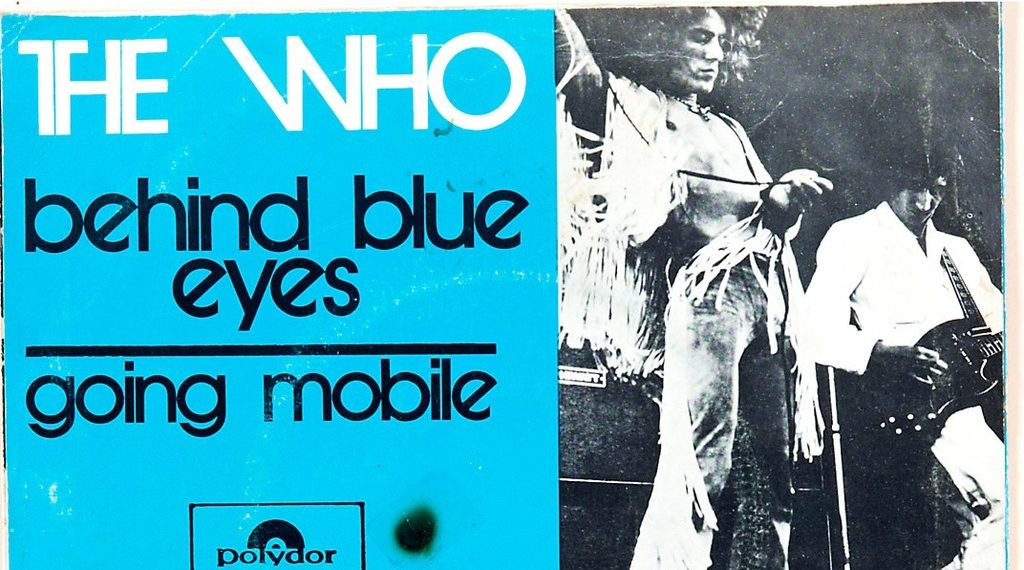Frankly, I have zero desire to be a so-called “discernment blogger.” I simply don’t have the time to fulfill my God given duties of a Christian, husband, father, and pastor while also monitoring all the happenings of the evangelical world at large. Furthermore, I can’t find the motivation to blog or tweet about every single new thing some church, movement, or pastor does.
With that out of the way, I would like to give some thoughts on the decision of J.D. Greear and The Summit Church canceling their entire weekend services on December 30, 2018 (which, if I understand correctly is something they do every year). Admittedly, this post goes a bit long. If you want to read a more concise pushback, go here.
My View of J.D. Greear
In June of 2018 in Dallas, Texas, my wife and I cast our vote in favor of J.D. for president of the Southern Baptist Convention. I’ve enjoyed the sermons I’ve heard him preach in person at Baptist meetings. I haven’t read his book Stop Asking Jesus into Your Heart, but from what I know about it I like it. I don’t agree with everything J.D. says, believes, or does, but I am grateful for his being the president of the SBC and for his passion to promote the cause of Christ both in the United States and to the nations. So I feel like I’m writing this from a perspective that is pro-J.D.
And, in reality, this post isn’t about J.D. so much as it is about a broader view of the Lord’s Day that seems to be held by too many Southern Baptists. I hope to see us reclaim a robust, historical, and (most importantly) biblical view of the Lord’s Day. Perhaps reclaiming the Lord’s Day will bring about some of the changes many of us hope to see in our beloved denomination.
The SBC and the Lord’s Day
Article VIII of the Baptist Faith and Message 2000 says “The first day of the week is the Lord’s Day. It is a Christian institution for regular observance. It commemorates the resurrection of Christ from the dead and should include exercises of worship and spiritual devotion, both public and private. Activities on the Lord’s Day should be commensurate with the Christian’s conscience under the Lordship of Jesus Christ.”
This differs slightly from the 1925 and 1963 versions of the BFM. Both say: “The first day of the week is the Lord’s day. It is a Christian institution for regular observance. It commemorates the resurrection of Christ from the dead and should be employed in exercises of worship and spiritual devotion, both public and private, and by refraining from worldly amusements, and resting from secular employments, works of necessity and mercy only excepted.”
As some readers will likely know, the BFM 1925 is based largely on the 1833 New Hampshire Confession of Faith. This confession has this to say about the Lord’s Day:
XV. Of the Christian Sabbath We believe that the first day of the week is the Lord’s Day or Christian Sabbath; and it is to be kept sacred to religious purposes, by abstaining from all secular labor and sinful recreations, by the devout observance of all the means of grace, both private and public; and by preparation for the rest that remaineth for the people of God.
I put all of this out there to say this: Since our inception as an official denomination in 1845, Southern Baptists have always collectively held a view of Sunday as a day that public worship should be practiced. Any given Sunday should be filled with acts of corporate and private worship that is shaped and instructed by God’s Word.
The SBC and Today
For better or for worse, I’m a part of several Baptist groups on Facebook and have been involved in a few discussions over the years on the Lord’s Day.
In these discussions, I’ve seen a number of pastors defend dismissal of Lord’s Day services in the name of “church autonomy,” or time for family, or not being Pharisees, or giving leaders a “sabbath” from the church (yes, people have really said that). Mind you, I’m not arguing about dismissing Sunday night (I do think there is still value in the Sunday night gathering by the way). These discussions are about missing Sunday services altogether.
With The Summit’s recent decision to dismiss Lord’s Day services altogether, these conversations have been renewed.
I can’t put a percentage on it, but from my limited observation there are an alarming number of people affiliated with the Southern Baptist Convention who do not see the Lord’s Day as the Baptist Faith and Message (2000) presents it. (And I think we could argue that the 2000 version is even more “lenient” than previous versions!)
Now, no one of whom I am aware is claiming that the BFM is our highest authority. As good baptists, we have always proclaimed Scripture alone as our highest authority for all manners of faith and practice. And certainly, every local SBC church ought to be autonomous.
Yet, what I’m finding in many discussions is that too many SBCers today seem to have either no awareness or a complete lack of concern as to what our “statement of generally held convictions” says.
The Lord of Every Day
Isn’t everyday the Lord’s Day though? Yes and no. Yes in that the sovereign God of the universe owns every second, minute, hour, and day. But no in the sense that the Lord did not resurrect on Monday, Tuesday, Wednesday, Thursday, Friday, or Saturday. He rose again on Sunday — the first day of the week. This is why we call Sunday “the Lord’s Day.”
Sunday is not like every other day. It is a day that quite literally marks a new beginning. It signifies not only a new week on the calendar but also the very capstone of the entire New Covenant! Jesus is alive!
Since Jesus rose again on Sunday, the church from the beginning (Acts 20:7) has met on this day for public worship. Yes, every day is the Lord’s day. And any day is a great day to gather with God’s people. But particularly, we set aside Sunday for the public worship of Jesus with the brothers and sisters of our local church. This day is about instruction from God’s Word by God appointed leaders, singing together, encouraging one another, and the list goes on and on.
A Sabbath from the Sabbath?
But with all that goes into any given Sunday, isn’t it okay to “take a break” sometimes? Isn’t that a wise stewardship of our time?
I would say no. And the reason I would say no is because Scripture seems to take the opposite position – that the regular assembly of the saints (Hebrews 10:25) is a necessary part of the life of every single Christian of all time. If one needs a Sabbath from the Lord’s Day gathering, I’m afraid he or she has not properly understood the purpose and function of the Lord’s Day gathering.
Now, I get not preaching every Sunday of the year. Pastors can and should take periodic breaks from preaching. Not only does this offer a time of refreshment, but it also allows other men to fill the pulpit. This is a good thing. But in no way does this mean a pastor should simply “not go” to his local church on one of those Sundays. He should most definitely go (assuming he’s not at another church that Sunday out of town) and worship with his flock.
Similarly, church members who are volunteers need a break sometimes too, but not from public worship! Rather, they should attend services and let others serve in their stead. To put “family worship” in the place of “corporate worship” is to misunderstand both of these crucial aspects of worship.
I think it’s possible that too many churches are “over-producing” on Sundays and under-delivering. What I mean is we have made such an exhausting production of Sunday that we have missed the beautiful, simple, and ordinary means of grace. Somehow we have taking preaching, prayer, singing, giving, and the ordinances, and turned them into an exhausting show that demands numerous extra staff persons, pressure for more and more creativity, and hundreds of volunteers to make sure everything goes off without a hitch.
If every Sunday service requires the production of a Super Bowl halftime show, no wonder everyone is so tired. The solution is not doing things half-heartedly of course. I’m certainly not advocating being hokey or lame.
The real solution is not to overlook the wonder of how beautifully simple corporate worship can be. Preach. Pray. Sing. Give. Observe the ordinances. Repeat. This is so simple it can be done in house churches, rented movie theaters, or brick and mortar church buildings all across the globe — smoke machines, laser lights, and stage props not required.
The Lord’s Day and You
The bottom line is that you and I need the Lord’s Day. It’s not just a good idea to go to church on Sunday. It’s a necessary part of the life of a Christian. I know one question that is asked is “What about Saturday services?” I’m a little old school here. I agree with our statements of faith above that the Lord’s Day is when we should gather. I don’t have time to go into detail here, but I typically hold to the idea that most of the reasons we have Saturday night services could be dealt with in another way. However, I’m not utterly dismissing the validity of these services in certain cases. I just mean to say that I’m a pretty big Lord’s Day proponent (if you didn’t know by now!).
You and I need the Lord’s Day because God says we do. Over and over again, the phrase “Let us” is mentioned in the book of Hebrews. Time and again, the “one anothers” are mentioned in the New Testament epistles. We need the encouragement, accountability, edification, challenge, building up, rebuke, instruction, and corporate singing that can only take place in the regular weekly assembly of the local church under the direction of God-ordained pastors.
There is no such thing as “New Testament Christianity” apart from the local church. And there’s no such thing as the local church apart from regular corporate assembly. I get the constant call to “be the church,” but there is no such thing as “being the church” separated from gathering regularly with the church, which is why I don’t support dismissing a Sunday morning to go serve the community. Go serve the community on Saturday. Worship together as the local church on Sunday. If observed rightly, you’ll find this far more beneficial to your community in the long run.
You see, the issue is not so much some church “canceling” a Sunday as much as it is too many of us looking at Sunday as an optional day to attend corporate worship. We schedule Sunday around our busy week instead of the other way around. We wouldn’t dare skip out on our jobs for the reasons we skip out on church because we see the immediate consequences — “You’re fired!” (as one famous guy used to say on his television show). Yet, willful neglect of any given Sunday has even more severe consequences. What the BFM 2000 seeks to show is not that Sunday worship is not the SBC’s idea. It’s not your church’s idea. It’s God’s idea — see the proof texts listed in the BFM: Exodus 20:8-11; Matthew 12:1-12; 28:1ff.; Mark 2:27-28; 16:1-7; Luke 24:1-3,33-36; John 4:21-24; 20:1,19-28; Acts 20:7; Romans 14:5-10; I Corinthians 16:1-2; Colossians 2:16; 3:16; Revelation 1:10).
Conclusion
I hope none of this has been read with me having an axe to grind with J.D. Greear. I am still glad he is the president of the SBC. But I do think he and his fellow pastors have made a mistake. What I hope is that in the coming weeks or months The Summit Church will issue a statement of repentance on this issue and be a model to the other 40,000 churches in the SBC of how a church can err but then do right by the grace of God to the glory of God.
What concerns me more than anything else is not J.D. or The Summit Church but the Southern Baptists I encounter who seem to have little to no regard for the Lord’s Day. This is the fruit of a larger issue of misunderstanding the purpose and necessity of the local church. Perhaps in the days and months ahead, this issue will cause many to think deeply about what the local church is and why it exists. And if Southern Baptists can recover a biblical view of the local church, I hold out tremendous hope for our future.






Robert, thank you very much for the kind words, brother. That sincerely means a lot to me that your spirit…